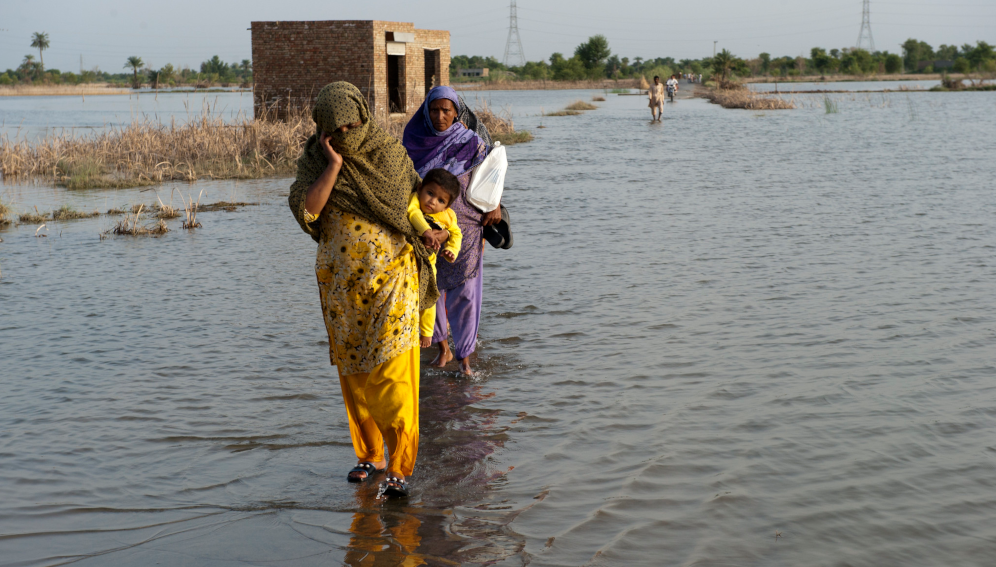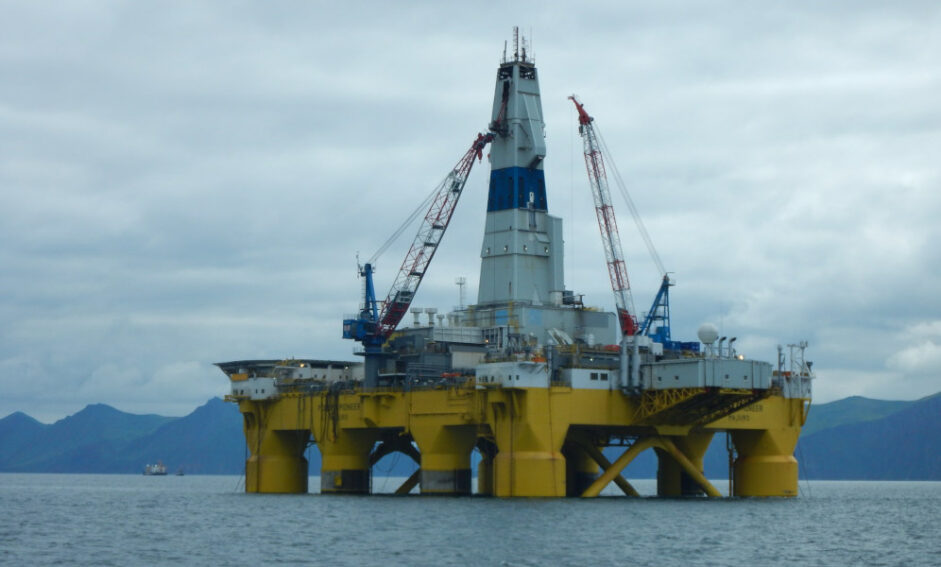21/03/23
Climate deaths ’15 times higher’ for most vulnerable

By: Ruth Douglas
Send to a friend
The details you provide on this page will not be used to send unsolicited email, and will not be sold to a 3rd party. See privacy policy.
[LONDON] Climate change has disproportionately affected the world’s most vulnerable people, with climate deaths soaring compared to richer nations, according to the most comprehensive report to date on the impacts of global warming on our planet.
“The report shows that climate impacts are undermining our livelihoods, they are damaging the global economy, and the impacts threaten our life support system – nature itself,” IPCC chair Hoesung Lee told a press conference in Interlaken, Switzerland, yesterday (Monday).
The AR6 Synthesis Report from the Intergovernmental Panel on Climate Change (IPCC) reveals that more frequent and intense droughts, threats to food and water, illness and death are all happening now as a consequence of climate change, with pandemics and conflicts making these harder to manage.
“This report is a clarion call to massively fast-track climate efforts by every country and every sector and on every timeframe.”
Antonio Guterres, UN secretary-general
Almost half of the world’s population lives in regions that are highly vulnerable to climate change, according to the 36-page summary for policymakers. It says deaths from floods, droughts and storms were 15 times higher in those regions in the last decade.
Every increment of warming results in a rapid escalation of hazards, scientists warn.
However, Lee also pointed to the “multiple, feasible and effective options” for reducing greenhouse gas emissions and adapting to climate change.
“Those options for change are already available,” he said. “The question is, can we deploy [them] quickly and effectively?”
‘Acceleration Agenda’
UN secretary-general Antonio Guterres said he was proposing an “Acceleration Agenda” towards a Climate Solidarity Pact which would see big emitters make deeper emissions cuts and support emerging economies to do the same.
“The 1.5-degree limit is achievable,” he told the Swiss press conference by video link. “But it will take a quantum leap in climate action.”
Deep, rapid and sustained cuts in greenhouse gas emissions are needed across all sectors to keep global warming to 1.5 degrees Celsius above pre-industrial levels, the report says, making it clear that the current pace and scale of change is not enough.
Emissions need to be cut by almost half by 2030 if warming is to be limited to 1.5 degrees the IPCC recommends.
“Governments have no excuse to ignore the emphatic warning for this critical decade,” said Harjeet Singh, head of global political strategy at Climate Action Network International, a network of more than 1,900 civil society organisations in over 130 countries.
“They must act fast to reject fossil fuels and stop any new expansion of oil, gas and coal.”
However, the announcement comes just seven days after the US approved drilling at the Willow Project oil field in northern Alaska, dubbed a “carbon bomb” by activists who say it will contribute as much CO2 to the atmosphere as 66 coal-fired power stations.

A drilling facility drilling in the Chukchi Sea offshore Alaska. Copyright: BSEE, (Public domain)
Singh added the report, which includes inputs from more than 700 scientists from around the globe, was not short of solutions or hope, but that scaling up finance would be crucial.
“Governments must strengthen efforts to protect communities from worsening and irreversible climate impacts, such as sea-level rise and melting of glaciers, which pose an existential threat to many communities,” he said.
‘People will go hungry’
AR6 integrates the findings of six IPCC climate reports published since the 2015 Paris climate accord, providing the most comprehensive scientific body of evidence on climate change yet.
Aditi Mukherji, one of the report’s 93 authors, said the focus on solutions marked this one out from the others.
“While climate change has reduced food security, the IPCC Sixth Assessment Report shows that there are a number of adaptation options that can be effective in reducing its impacts,” she said.
“Those include more climate resilient crops, better water management and storage, irrigation, and farm and landscape-level diversification.”
Smallholder farmers are most affected by climate change but receive less than two per cent of climate finance, says Mukherji, also director of the Climate Adaptation and Mitigation Impact Area Platform at the Consultative Group on International Agricultural Research (CGIAR).
“If we don’t step up climate finance for food systems, more people will go hungry,” she said.
The IPCC report, which is the last in the IPCC’s Six Assessment cycle, was approved on Sunday after days of intense, around-the-clock negotiations between governments and scientists in Interlaken.
‘Wake-up call’
Samoa’s UN ambassador, Fatumanava-o-Upolu III Pa’olelei Luteru, chair of the Alliance of Small Island States (AOSIS), said the findings should be a wake-up call for the international community.
“These findings reaffirm, as AOSIS has continuously stated, that keeping 1.5 alive is imperative to the sustainable development of small islands – our citizens who suffer the most from a crisis we did not cause,” he said.
He said people living in the Pacific and Caribbean islands were being displaced from their homes while the fossil fuel industry was reaping billions of dollars in profits.
“AOSIS is calling on the international community to close the gap and make concerted progress on the work programme for urgently scaling up mitigation ambition and implementation,” he added.
This piece was produced by SciDev.Net’s Global desk.













